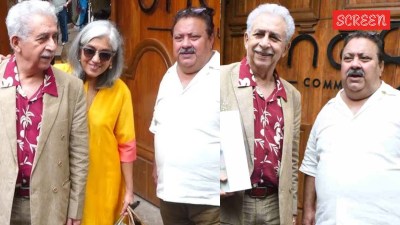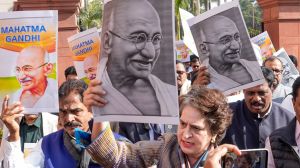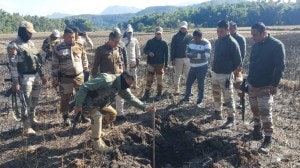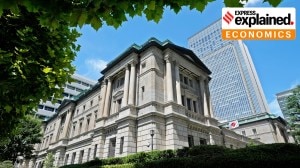Caste census: Pushing for OBC quota,Gowda govt set ball rolling
The proposal for a caste-based census,a move recently opposed by the Home Ministry,had been on top of the agenda of the 1996 United Front government.
The proposal for a caste-based census,a move recently opposed by the Home Ministry,had been on top of the agenda of the 1996 United Front government. It was part of an effort to consider reservation for Other Backward Class OBCs in the Lok Sabha and Assemblies. Officials in the Ministry of Social Justice amp; Empowerment said that the 1996 Cabinet order still stands and the Ministry could be asked to bring it back to the Cabinet.
The United Front initiated the process in 1996 but it collapsed with the ouster of the coalition government headed by Deve Gowda in 1998. The move to reserve seats for OBCs started with a Cabinet decision in December 1996 to examine the feasibility of providing reservation for OBCs in the House of the People and in the Legislative Assemblies .
Then Prime Minister Deve Gowdas Cabinet which had Mulayam Singh Yadav as the Defence Minister with members of Janata Dal - to which Sharad Yadav and Lalu Prasad Yadav belonged - in the Council of Ministers. The three Yadavs are among the most vocal supporters for a caste-based census now as well.
On the advice of the Cabinet,the then Ministry of Welfare examined the issue and was in principle agreeable to provide for reservation to OBCs as it was considered most reasonable and in line with a similar dispensation for Scheduled Castes and Scheduled Tribes.
It submitted a Cabinet proposal in November 1997 for caste-wise enumeration in Census 2001 as only after having the relevant statistics,it would be possible to determine the number of seats to be reserved for such backward classes in the House of People and Legislative Assemblies of the states.
The ministry also proposed that the rule of exclusion that is creamy layer would not be extended in seat reservation in legislative bodies as was being applied in government services.
But before the proposal could be taken up in the Cabinet,the UF government fell and the NDA headed by the Bharatiya Janata Party withdrew the note on the advice of the Home Ministry which said that the caste enumeration should not be allowed to acquire a legal validity and warned that it could accentuate caste consciousness among people.
This is bound to trigger a debate on whether or not such a step would accentuate the caste consciousness among people and make them think in terms of numerical strength,thereby adding a dimension to existing social,economic and political dimensions of caste, it said.
Once the population statistics are in,it may be possible to establish the number of seats to be reserved for OBCs proportionate to their relative population, they said,adding that it has the backing of a Joint Parliamentary Committee which recommended an amendment at the appropriate time to allow for OBC reservation.
The JPC,while considering the Womens Reservation Bill in 1996,had recommended the inclusion of OBC women,along with those from SC and ST groups,through the umbrella amendment in the Constitution.
- 01
- 02
- 03
- 04
- 05































